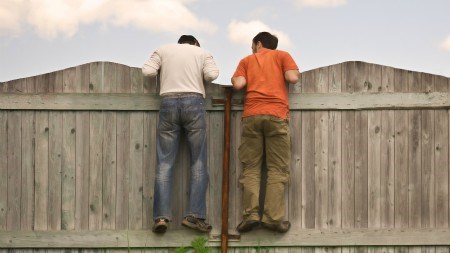Neighbours making your life hell? Don’t despair – the law is on your side. Find out what your rights are when the noise levels and your blood pressure go up.
Neighbour Nuisance Law in South Africa
Residential properties in our country are reducing in size, with more people living together in gated communities. Could this lead to a whole branch of law for handling relationships between people who live next door to one another?
According to Alec Veitch, an associate at Schindlers Attorneys, 'Neighbour Law' exists as a mechanism to balance the rights of neighbours "where competing interests exist." Alec advised that common law entitles everyone to regular use and enjoyment of land as long as he or she complies with the legislation, regulations, and by-laws concerning that land. And also, as long as that use poses no threat to anyone or their property. "However," he said, “Section 36 of the Constitution provides that no right is absolute, as any right can be restricted to be equitable, and democratic in our society.”
Alec said that Neighbour Law in South Africa is comprehensive due to the scope of the disputes that can occur - but that most of these fall into one of five different areas:
- Nuisance
- Encroachment
- Lateral and surface support
- Interference with the natural flow of water
- The elimination of danger
Noisy neighbours
According to Schindlers Attorneys' Michali Zachariou (candidate attorney) and Chantelle Gladwin (partner), South African law makes a distinction between:
- Disturbing Noise - which is "objective and defined as a scientifically measurable noise level."
- Noise Nuisance - which is "a subjective measure and defined as any noise that disturbs or impairs or may disturb or impair the convenience or peace of any person."
Both are illegal in terms of the Environment Conservation Act (73 of 1989) and the Noise Control Regulations. (In terms of Schedule 5 of the Constitution, the individual provinces have been responsible for administering these regulations since 1996.)
Disturbing Noise in the urban environment - a loud party, for example - is usually governed by municipal by-laws, so if your neighbour’s kids are driving you nuts with their doef-doef-doef at a ridiculous 85 decibels after 10:00 p.m. on a Friday or Saturday night, and if they refuse to respond to your polite requests to tone it down, a visit from the SAPS will usually do the trick.
Noise Nuisance, on the other hand, is more subjective and usually happens over a longer period. It’s defined as noise that “disturbs or impairs or may disturb or impair the convenience or peace of any person,”
And could include:
- Dogs that bark incessantly
- The roar from machinery
- Or any pervasive sound that makes your life a living hell
Michali and Chantelle warned, though, that, “In order to show that a Noise Nuisance exists, a reasonable person must find a certain noise intolerable or seriously effecting his enjoyment of his property.”
If you feel that you've become a victim of excessive noise, you can take the matter to court. However, before you do that, consider that the court will apply a test of objective reasonableness.
"A person who is too sensitive or easily irritated must consider whether he is reasonable in taking action against his neighbour. The action may not be successful if the reasonable person would not have been affected by the noise," they said.
Legal Steps
If you do decide to take steps against your neighbour, you should begin by making a written complaint to your Local Authority. Many of them have Noise Control Units whose officials are empowered to take steps if they find that a problem exists. They could serve an instruction to reduce the noise, issue a fine, or even - in extreme cases - confiscate equipment.
Michali and Chantelle suggested applying to a court for an interdict to prevent your neighbour from causing the specific noise and or suing for damages suffered. As a result of the excessive noise (if they are uncooperative), they said that the court would then generally consider:
- The type of noise
- The degree of persistence
- Where the noise occurs
- The times when the noise is disturbing
- The efforts made to resolve the matter before it makes a ruling
Every case is decided on its own merits, since no fixed standards exist when it comes to determining whether an action of this sort is unlawful or not. If you do succeed in obtaining an interdict, but your neighbour persists with his or her unlawful actions - "The neighbour may be found guilty of contempt of court, in which case the court may impose a fine or imprisonment in serious cases."
Penalties for violating noise by-laws are laid out in Section 9 of the Noise Control Regulations. "Any person who contravenes or fails to comply with section 4 and 5 are liable on conviction to a fine not exceeding R 20,000.00 or imprisonment for a period not exceeding two years."
Updated on 9.4.2020




